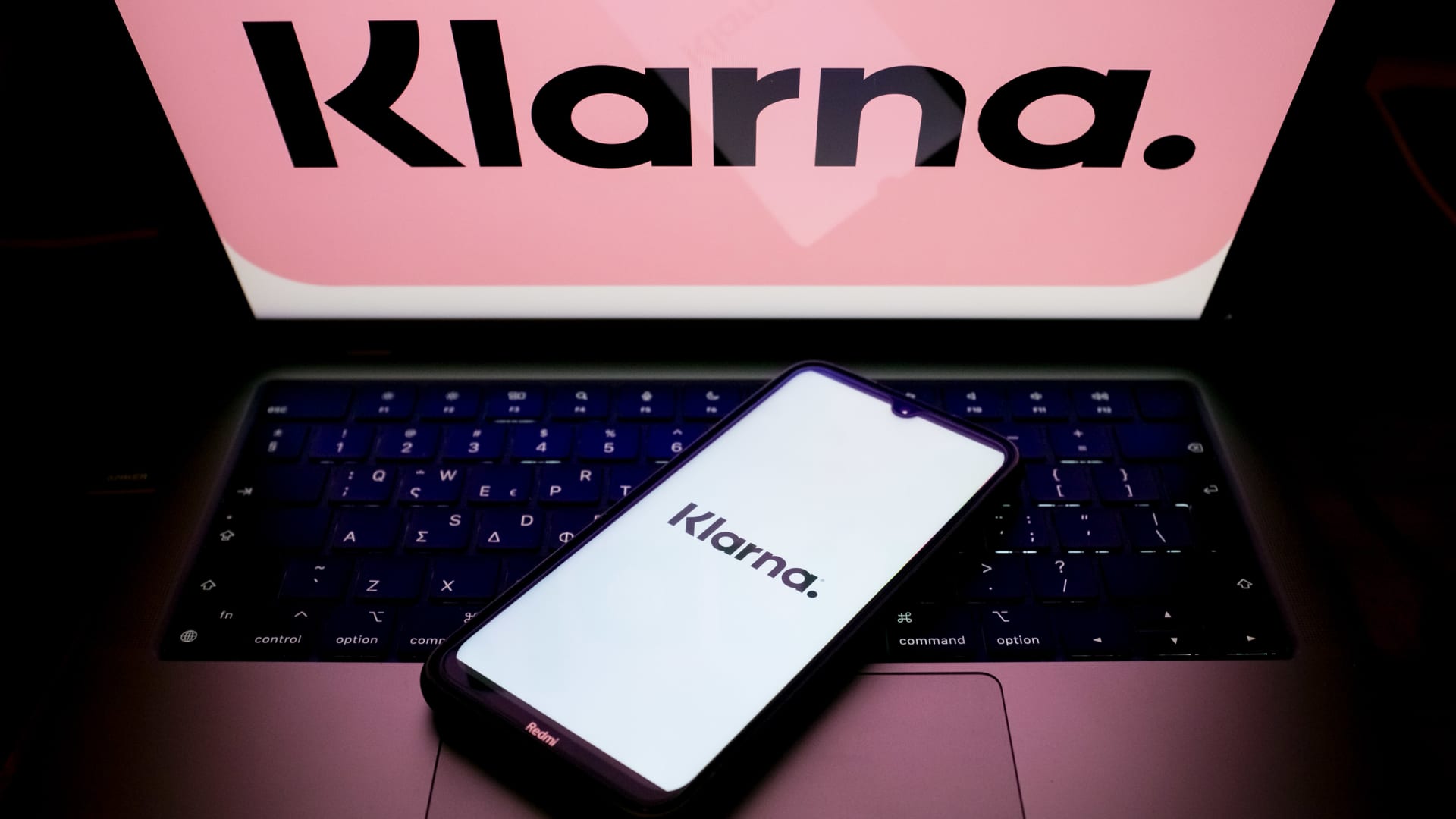Buy now, pay later firms like Klarna and Block’s Afterpay could be about to face tougher rules in the U.K.
Nikolas Kokovlis | Nurphoto | Getty Images
Financial technology firm Klarna is pushing deeper into banking with its own checking account-like product and a cashback offering that rewards users for shopping via its app.
The company — best known for its buy now, pay later loans that let consumers pay for purchases via interest-free monthly installments — said Thursday that it is launching the new products as it seeks to “disrupt retail banking” and encourage customers to move their spending and saving onto its platform.
“These new products make it easier for customers to manage multiple scheduled payments, helping our customers use Klarna for more frequent purchases and driving loyalty,” Sebastian Siemiatkowski, Klarna’s CEO and founder, told CNBC.
Siemiatkowski said that Klarna wants to “support all consumers with their everyday spending,” adding that the products will allow people to “earn money while they shop and manage it in a Klarna account.”
The two new products, which are being rolled out in 12 markets including the U.S. and across Europe, will show up in the Klarna app as “balance” and “cashback.”
Klarna balance lets users store money in a bank-like personal account, which they can then use to make instant purchases and pay off their buy now, pay later loans.
Users can also receive refunds for returned items directly in their Klarna balance.
Cashback offers customers the ability to earn up to 10% of the value of their purchases at participating retailers as rewards. Any money earned gets automatically stored in their balance account.
It’s not Klarna’s first foray into more traditional banking; the company has offered checking accounts and savings products in Germany since 2021.
Now, the company is expanding these banking products in other markets.
Customers in the EU — where Klarna has an official bank license — will be able to earn as much as 3.58% interest on their deposits. Customers in the U.S., however, will not be able to earn interest.
The launch marks a major step up in Klarna’s product range as the fintech giant edges closer toward a much-anticipated U.S. IPO.
Klarna has yet to set a fixed timeline for the stock market listing. However, in an interview with CNBC’s “Closing Bell” in February, Siemiatkowski said an IPO this year was “not impossible.”
“We still have a few steps and work ahead of ourselves,” he said. “But we’re keen on becoming a public company.”
In the meantime, Klarna is in discussions with investors about a secondary share sale to provide its employees with some liquidity, a person familiar with the matter told CNBC.
Klarna’s valuation on the open secondary market is currently in the high-teen billions, said the source, who was speaking on condition of anonymity as details of the share sale are not yet public.

 Blog Post1 week ago
Blog Post1 week ago
 Economics1 week ago
Economics1 week ago
 Finance1 week ago
Finance1 week ago
 Economics1 week ago
Economics1 week ago
 Economics1 week ago
Economics1 week ago
 Personal Finance1 week ago
Personal Finance1 week ago
 Accounting1 week ago
Accounting1 week ago
 Economics1 week ago
Economics1 week ago










